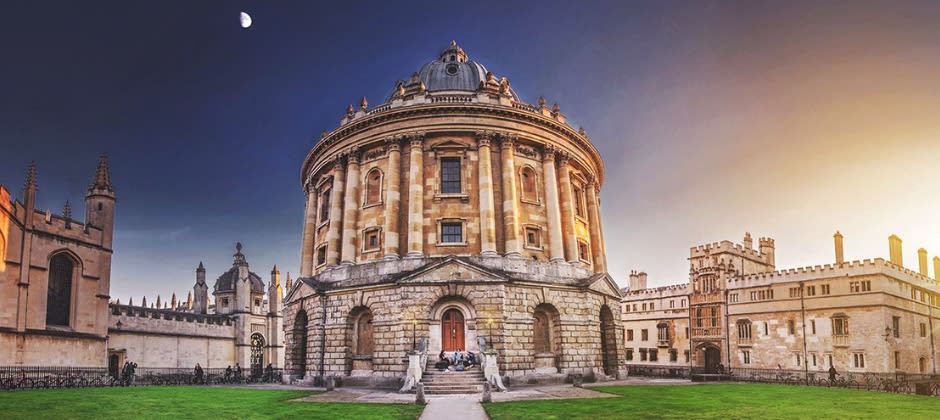Course description

Overview
A one-year, part-time Oxford University online course to help you develop advanced skills in researching local, regional and social history.
The Undergraduate Advanced Diploma in Local History is a one-year part-time course providing training in key concepts and methods of historical studies. It is delivered entirely online, so you can work at home with access to the course material, your tutor and fellow students.
This course will help you improve the key skills you need for historical research, especially the manipulation of information using spreadsheets and databases, and it will teach you how to use what you have learned to produce good, scholarly historical writing. With the help of your tutor, you will produce your own piece of local historical research. Some of our past students’ projects have been developed into articles, for scholarly journals.
The course is taught at third-year undergraduate level (FHEQ Level 6). It is good preparation for a higher degree such as Oxford University’s part-time MSc in English Local History or master’s programmes at other universities.
Who is this course for?
As the course is delivered entirely online, you can join it no matter where you live. There are no formal entry qualifications, but you should have a lively interest in the localities and communities of the past, and some experience of local history. This might have been gained through a course, through the study of family history and genealogy, or investigating local, rural, public or labour history using sources in libraries and record offices.
This course is particularly relevant:
- if you want to learn how to use original sources and databases for your own research into local and family history (although please note it is not designed as a family history course);
- if you are pursuing a career in the heritage, archives or library sector, or if you are a history teacher or local studies librarian, you are likely to find the course professionally useful;
- if you volunteer in a museum or historic property or are involved with a local history society or research project.
Past students have gone on to work in a number of related fields, including as historians and in the heritage industry. The transferable nature of the skills you acquire will be valuable in a wide range of jobs, and equally useful if you are retired or not currently working.
You should be familiar with the use of computers for word processing, using email and searching the Internet. It is advisable that you have some experience of Access, Excel, or other database or spreadsheet programs before starting the Advanced Diploma. Short introductory courses are often available locally and online.
The content of the course is entirely devoted to English local history, although the skills learned may be applied more widely and the final project may concern the local history in your own region or an area of your own choice. Students outside Britain are encouraged to apply; you should understand that some knowledge of British history, society and institutions will be assumed.
Modules
Module 1: Concepts and methods of local history
This module consists of eight units, making extensive use of original sources and case studies. There will be four written assignments, allowing you to practise historical skills and to write some local history. The units cover approaches to local history, finding primary and secondary sources, the critical use of evidence, personal testimony as a source, a practical guide to the use of statistics for history and the use of Excel, record linkage, and effective writing and publication.
Module 2: Databases for historians
The second module consists of six units and uses data sets for two contrasting communities, the Lancashire port of Liverpool 1650-1750 and the Oxfordshire market town of Woodstock in the 17th century, as well as criminal records for London from the Old Bailey online database. Students will practise methods for querying existing databases, then move on to learn how to design, create and use their own database for the analysis of historical data. Two further units introduce some of the exciting ways in which historians are now using databases, with up-to-date examples. There will be two assignments, the first to design a database to answer an historical question, based on data supplied. The final project is a longer piece of historical writing using data analysis.
Assessment
The award of the Advanced Diploma is based on successfully completing the written assignments (including the database for assignment 5) and the final project. There is no written examination. All students are strongly encouraged to participate in the group discussions and activities which are an essential part of the course. The weekly tutorial is conducted in the form of an online chatroom.
Award and credit transfer
Successful students will be awarded an Oxford University Undergraduate Advanced Diploma in Local History. Outstanding performance will qualify for a Distinction. You will be invited to receive your Advanced Diploma at the annual awards ceremony of the Department for Continuing Education, held at Oxford’s Sheldonian Theatre. This happy occasion provides an opportunity to meet your tutor and fellow students in person.
The Advanced Diploma carries a Credit Accumulation and Transfer Scheme (CATS) rating of 60 points at FHEQ Level 6. You may be able to transfer these credit points to other HE institutions.
Please visit our website for contact information, details on how to apply and for information on course fees.
Do you work at this organisation and want to update this page?
Is there out-of-date information about your organisation or courses published here? Fill out this form to get in touch with us.

